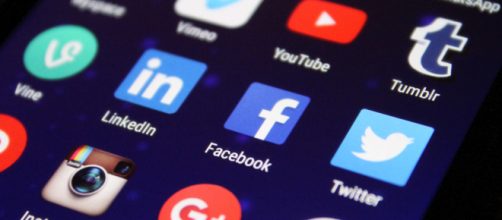Drug dealers are increasingly using social media platforms such as Instagram and Snapchat to sell illegal substances to young people, some as young as 13. Experts have warned the "disturbing" trend rapidly growing in the last year and a half according to youth workers who expressed concern that young people were buying illicit substances from strangers and meeting up with them.
How are children being targeted?
Instagram and Snapchat are the most popular platforms for drug dealers to use although such activity is known to be occurring across similar platforms such as Facebook.
Young people are being attracted by hashtags and emojis used by dealers alongside images of the drug/s on offer. They then provide alternative contact details such as Wickr, an encrypted messaging app which authorities cannot trace.
Encounters between dealers and customers are particularly risky when they do not know each other because if they know you, there is less chance of being ripped off or facing violence according to Nick Hickmott, from the charity, Young Addaction.
The availability of local drug dealers is usually spread by word of mouth with the most popular drugs sold being "party drugs" such as MDMA and ecstasy although benzodiazepines such as Xanax, which is often used to self-medicate depression and anxiety, are commonly sold.
What are the dangers of this?
In Scotland's Tayside alone, Illegal Drugs consumption sees at least one child a week being taken to hospital with the number of under-16s admitted to accident and emergency departments from the effects of illegal substances being at a five year high with 46 children being treated between November 2016 and October 2017, up from 44 the last year and 27 the year before.
Who is selling them?
Meanwhile children as young as 12 are also being forced to sell Class A drugs such as heroin and crack cocaine themselves, often because they have parents who are habitual drug users and subsequently lead chaotic lifestyle, leaving them vulnerable to exploitation by drug dealers and other criminals who are looking to avoid prison.
Additionally, children are cheap, expandable and easily controlled.
For example, around 4,000 teenagers from London are trafficked into selling drugs in more rural towns and cities every year, which has become so prevalent that it has been given its own name' "county lines," in reference to the dedicated mobile phones or "lines" that they use to carry out their sales across the country.
At other times they are sent to the crackhouses and then create their base from there to sell on the streets in a practice known as "cuckooing."
Many of the girls who are sent are often sexually assaulted and or abused.
They are also driving up the use of guns, acid and knives in attacks across the country, according to a former Senior Official at the National Crime Agency with 85% carrying knives, 74% referencing guns and 25% reporting acid attacks.
Other incidents included kidnapping, robbery and assault with nine reported deaths so far being related to drug gangs.
Who should be responsible for stopping this?
Many believe that the social media platforms themselves should be responsible for shutting down the dealers' accounts.
Ian Hamilton, a lecturer in mental health at York University is in favour of social media networks taking the issue more seriously and likened its effectiveness to their recent cracking down on child exploitation.
A spokesperson for Instagram said that they are required to follow the law in regards to the sale of illegal drugs and reports are reviewed constantly and removed as quickly as possible when considered necessary.
Snapchat also said it took responsibility in creating a safe and secure experience seriously and has an active safety team which responds to any concerns within 24 hours. They also said that there was no place for selling drugs on Snapchat.
Although others suggest that rather than giving social media the near-impossible job of monitoring such behaviour, more education should be put in place for young people online.
Harry Sumnall, a Professor in substance abuse at the Public Health Institute believes that more research into the trend is needed and believes a better idea would be to ensure young people are educated on the dangers of taking and buying drugs online alongside general internet safety education.
In regards to children selling drugs themselves, police are using modern slavery legislation to tackle the trafficking of young people across the country.


